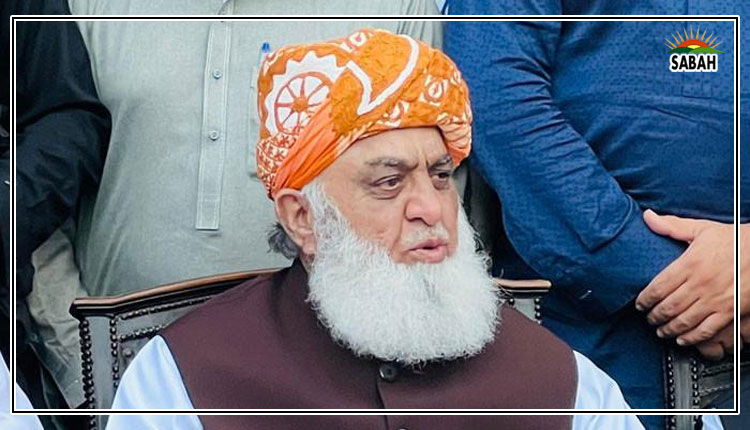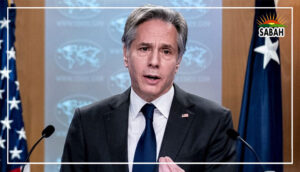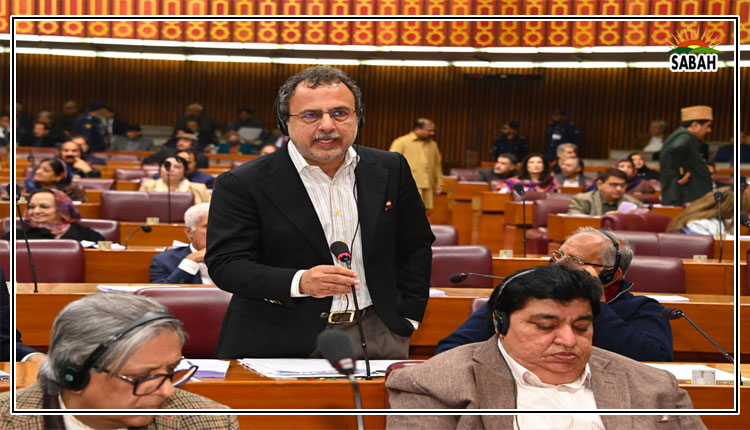Pakistan’s weak stance on Gaza situation may result in public backlash: Think Tank
ISLAMABAD, Oct 15 (SABAH): A possible peace deal between Saudi Arabia and Israel was the first casualty of the Hamas attack. The government of Pakistan’s weak stance on the situation can lead to public backlash in the country. There is little chance that Al-Qaeda and ISIS jump in to join the conflict. These thoughts were expressed by the speakers during a roundtable conference titled “Geostrategic Conundrums: A Comprehensive Analysis of the Hamas-Israel Conflicts Impact on Pakistan” organized by an Islamabad-based think tank the Pakistan Institute for Conflict and Security Studies (PICSS). Pakistan’s former envoy to Egypt Ambassador Mushtaq Shah (Retd), Chairman PICSS and Former Pakistani High Commissioner to Sri Lanka Major General Saad Khattak (Retd), Assistant Professor NUST Dr. Farah Naz and Managing Director PICSS Abdullah Khan were among the speakers of the roundtable conference. The event was attended by academia and diplomats. Ambassador Mushtaq Shah argued that Pakistan has no bilateral dispute with Israel. It supports the Palestinians based on the principle of decolonization and common faith. He further said that Pakistan need not to get directly involved in the conflict but must continue to extend political and moral support to Hamas and build stronger bonds with Hamas which is now a de-facto representative of the Palestinian people. Mushtaq Shah said that Hamas has popularity among Palestinians as well as in the Muslim world. Since there is no agreed upon definition of terrorism therefore declaring Hamas a terrorist organisation may not be acceptable to all. He said that a weak stance on the Palestine issue may result in public backlash in Pakistan. Pakistan should let the public vent out its anger, and for that matter, other Muslim countries should also let the public vent out anger and frustration. Otherwise, Muslim masses may throw out their own governments. Ambassador Mushtaq Shah also suggested that the world should stop looking at Hamas as a terrorist organisation. Otherwise, there will be terrorism as an outcome of suppression. He said that in the current situation, no normalisation with Israel is possible by Pakistan or any other country.
Former Pakistani Ambassador to Sri Lanka Major General Muhammad Saad Khattak (Retd) said that neither Pakistani government nor Pakistani people can support killing of innocent Israeli people by Hamas but at the same spirit the friends of Israel should come forward and condemn the butchering of Palestinian people in Gaza by the Israeli occupying forces. He said the current conflict did not build overnight, but it developed since 1948, and the rights of Palestinian people were snatched by Israel with the help and active support of the West. He criticised the Western media’s double standards regarding coverage of the conflict. He also criticised Pakistan’s official stance on the current situation in Palestinian territories and said that Pakistan expressed a very weak stance that does not reflect aspirations of the people of Pakistan.
Professor NUST University Dr. Farah Naz emphasized that, like the United States and China, Pakistan should adopt a diplomatic tone when dealing with this complex matter. Dr. Naz said that Israel Palestine Conflict is a highly sensitive subject. Pakistani hearts beat in support of Palestinians. That is the prime reason why the MOFA took such a stance ‘two-state solution’ when the issue escalated. Standing with the Palestinian cause will put huge pressure on a struggling economy like Pakistan. She said Therefore Pakistan should go for a diplomatic resolve by engaging international law and international organizations. Abdullah Khan, Managing Director of PICSS, shared insights into the potential impact of the conflict on international militant groups. He said that some people feared another migration of militants from different parts of the world towards the Middle East, especially from the Pak Afghan region. However, that is least likely happening as per his assessment. He argued that global Jihadi migrations in the past were always linked to western geostrategic goals whether it was Afghanistan’s Jihad in 80s, or subsequent conflicts in Balkan and Caucasus region in 90s or recent conflicts in Syria, Iraq and Libya, everywhere there was a geostrategic interest of the west involved. Since there is no such thing in Israel Palestine conflict, there are least chances of such occurring.












